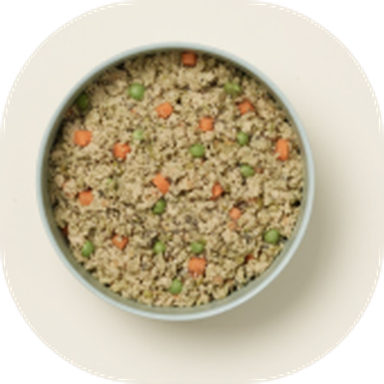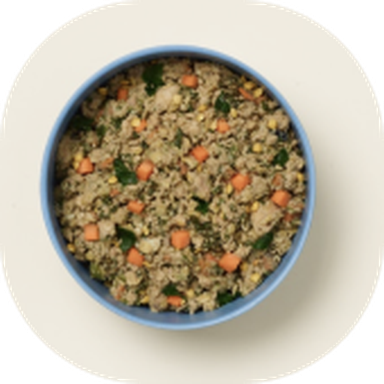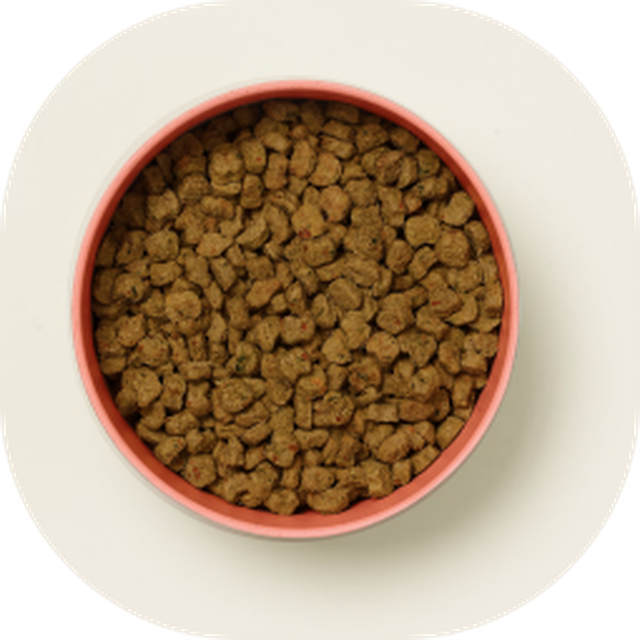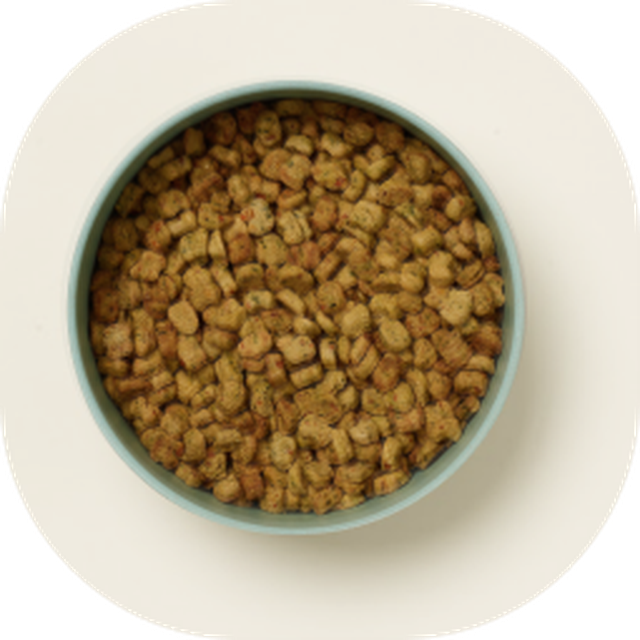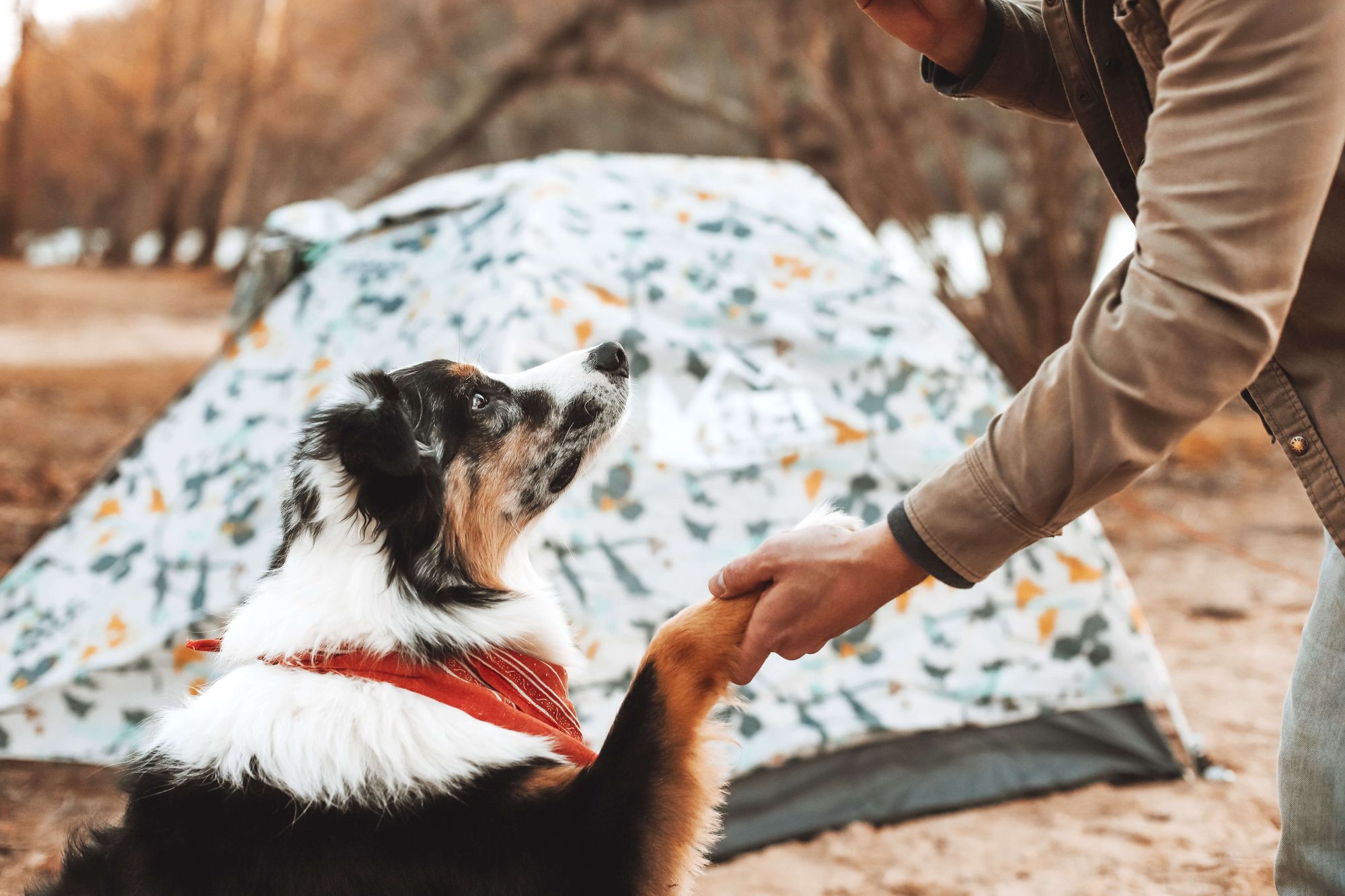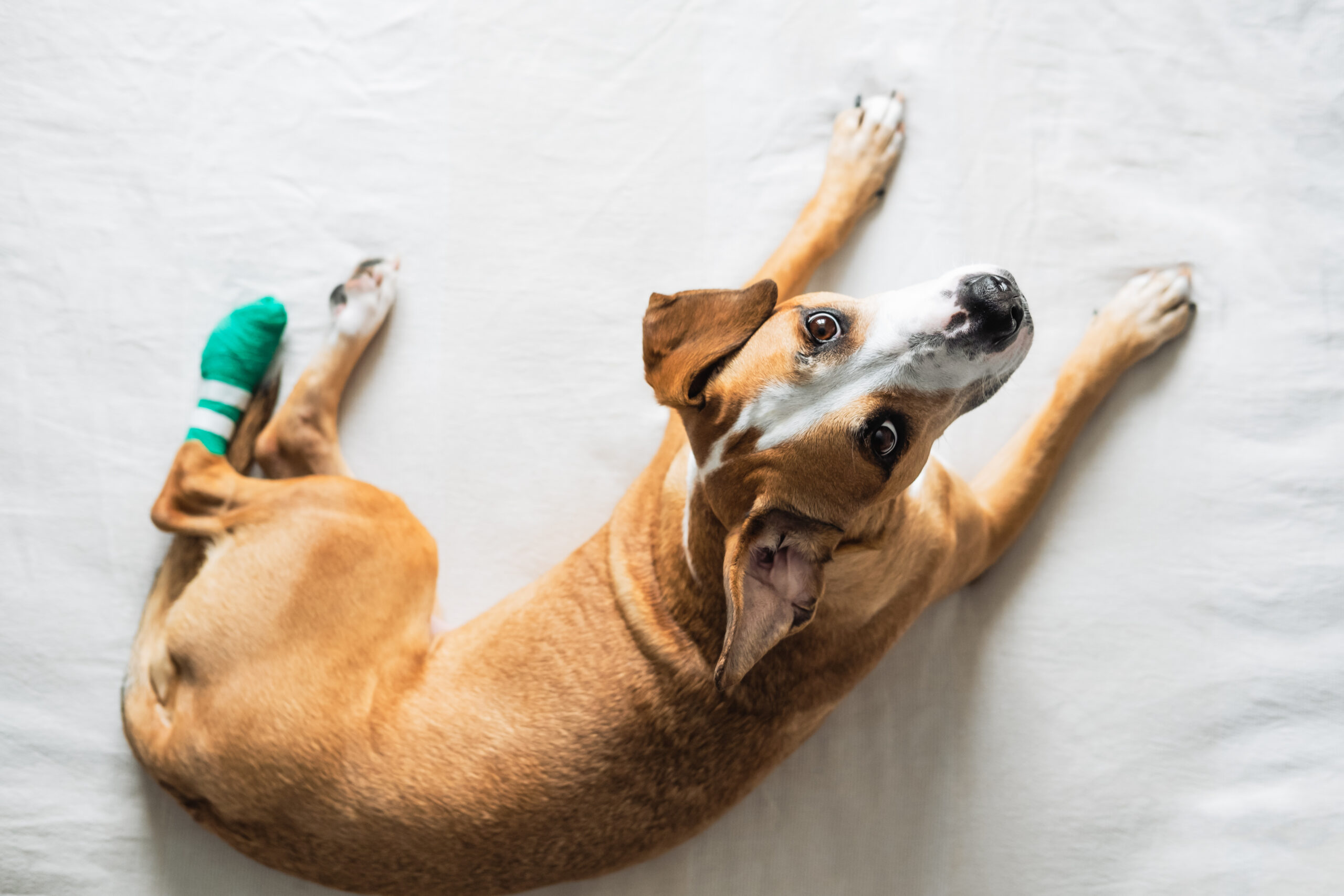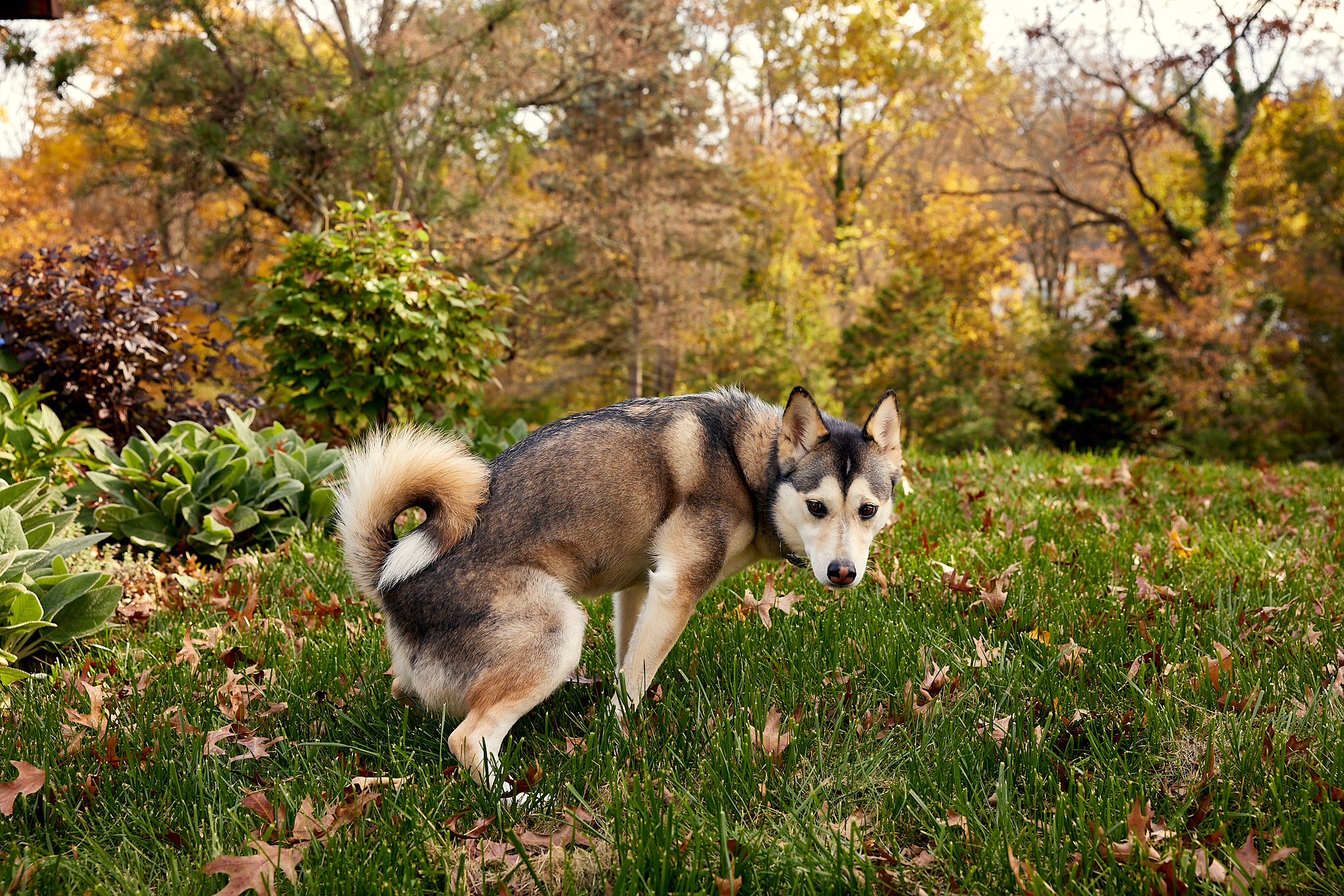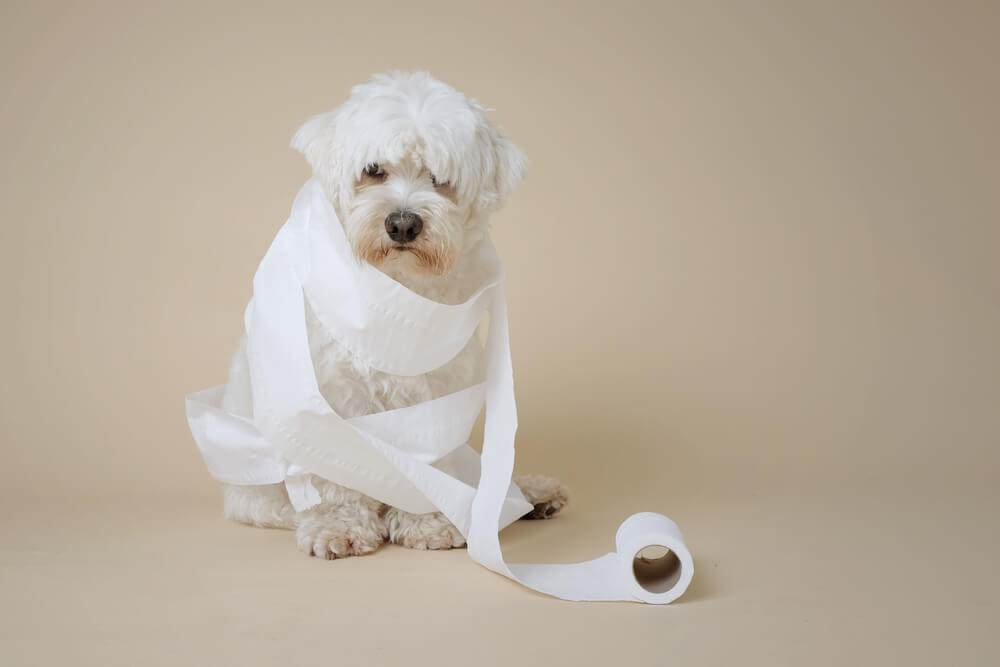Hey Ollie blog readers! We’re offering you an exclusive 60% OFF your starter box! Try now!
Essential oils have become a go-to product in many households. Lavender oil is a top choice for its stress-relieving properties and its pleasant floral scent. It’s not surprising, then, that you may want to extend these perceived benefits to your dog.
However well-intentioned this might be, it’s important you review the facts before giving your dog a product intended for humans. Is lavender oil safe for dogs? And, if so, how should you use it? Read this guide before giving lavender oil to your dog.
What is lavender oil?
Lavender oil is a highly concentrated extract made from the flower spikes of lavender plants. It is a colorless oil that does not dissolve in water. It contains the same phytochemicals found in the lavender plant, including linalool and linalyl acetate, which are not safe for some animals but are acceptable in small doses for others.
Lavender oil is generally used in perfumes and for aromatherapy, as well as skincare products. People have recently adopted its use for a wider range of purposes, particularly to promote relaxation.

Is lavender oil safe for dogs?
Properly-prepared, diluted lavender oil is generally considered safe for use topically on dogs. The most common uses of lavender oil for dogs are to soothe itching, irritation, and inflammation. It is relatively versatile, helping dogs with multiple issues, said Sadie Cornelius of CanineJournal.com.
“[Lavender oil] can be used to calm and soothe your dog by gently rubbing it into your dog’s ear, fur and skin while giving your dog a pleasant massage,” Cornelius said. “Lavender oil also has antibacterial and anti-itch agents. This is great if your dog has a skin irritation.”
However, there is a difference between a topical lavender oil and ingested lavender. Two compounds found in lavender, linalool and linalyl acetate, can be toxic to dogs in large amounts. Concentrated lavender oil contains more of these compounds than its flowers; dogs would need to eat a large volume of lavender plants to get sick, but could fall ill after ingesting only a small amount of lavender oil. If your dog vomits, cannot defecate, or has a reduced appetite, contact your veterinarian immediately, as these could be signs of poisoning.
What are the benefits of lavender oil for dogs?
Lavender oil has several beneficial properties for dogs when used correctly, including:
- Soothing itchy or irritated skin: Lavender can soothe your dog’s irritated or itchy skin. For dogs that are scratching to satisfy a persistent itch, diluted lavender oil can provide some relief.
- Promoting a calming effect: One of the reasons people use lavender oil is to help relax or relieve stress. You can use essential oils for an anxious pup as well. Lavender oil is often used for aromatherapy for this purpose.
- Acting as an insect repellant: Lavender oil acts as an insect repellant for both humans and dogs. If your dog has an issue with fleas and ticks, or if pesky mosquitoes swarm on your next trek out of the house, applying some diluted lavender oil to your dog’s coat could help reduce the chance of bites.
- Serving as an anti-bacterial and anti-fungal agent: Lavender oil is thought to fight off bacteria and fungus that could ultimately harm your dog. Lavender oil can be applied as a preventative measure, but if your dog has developed a bacterial or fungal infection, take them to a veterinarian immediately.
What are the risks of giving lavender oil to dogs?
There are some risks to be aware of when giving your dog lavender oil for the first time. The biggest risk is if your dog has an allergic reaction. If your dog is allergic to lavender oil or any other essential oil, the reaction could be severe. Allergy symptoms include itchy and inflamed skin, respiratory difficulty, and chronic infections.
Dogs may also be at risk of poisoning if too much essential oil is ingested. While many essential oils are OK to use when properly diluted and applied topically, ingestion could make animals sick, including ingesting eucalyptus oil and tea tree oil. Thoroughly read all instructions and warnings before using an essential oil on your dog.
Avoid these risks by:
-
- Diluting lavender oil before giving it to your dog: Your pets are far more sensitive to essential oils than you are, so diluting lavender oil before giving it to your dog is a great way to cut the potency of the oil. Dilute your lavender oil according to your veterinarian’s instructions before applying it to your dog’s skin.
- Applying limited amounts of lavender oil only to the affected area: Whether you are attempting to soothe a rash or just want to use lavender oil for aromatherapy, you should use it sparingly on your dog. Try to place the lavender oil in spots where your dog cannot easily lick it off. After diluting the lavender oil, apply a small amount to the area you expect it will be most effective. You can always apply more later but limiting the amount you give your dog in one sitting reduces the chance they will have an adverse reaction or lick off enough to get sick.
- Keeping your lavender oil out of your dog’s reach: When you are not using your lavender oil, it should be tucked away in a secure place where your dog can’t get into it. If a dog were to ingest a large amount of undiluted lavender oil, they could become severely ill. This is even more important if you also have cats; lavender oil in any amount is toxic to felines.

How to give a dog lavender oil
If your veterinarian approves your plan to give lavender oil to your dog, be sure to properly prepare the essential oil first. Dilute it as recommended and ensure that the undiluted lavender oil is safely put away where your dog cannot access it.
Once you’ve prepared the diluted lavender oil solution, how you apply it depends on your intended use. For example, for flea and tick protection, place a drop of oil on the back of your dog’s neck and at the base of their tail. If your purpose is aromatherapy, however, it could be useful to add a few drops to a bandana for your dog to wear around its neck.
Always remember to use very small amounts of diluted lavender oil and slowly work your way up to ensure your dog doesn’t have any negative reactions. Observe your pet closely and if there are any signs of allergic reactions to the lavender oil, bring your dog to the veterinarian.
Lavender oil is safe for dogs when used properly
Lavender oil is safe for dogs so long as you take the time to prepare a diluted solution properly and apply it in limited amounts to localized areas. A dog ingesting lavender oil in large amounts is risky, but a small amount of diluted lavender oil as a topical to soothe your dog or protect against illness and insects can have an effective therapeutic effect on your pup. However, there are certain risks when using lavender oil for your dog that you should know before using. By properly preparing lavender oil before giving it to your dog, you can mitigate these risks and help protect your pet’s health. Before using any new products on your dog, you should consult with a veterinarian.
The Ollie blog is devoted to helping pet parents lead healthier lives with their pups. If you want to learn more about our fresh, human-grade food, check out MyOllie.com.
Tagged As:

The nutrition your dog needs,
the food they want.

Enjoying our articles? Subscribe our Newsletters and get new articles directly to your inbox
You might also like
26 April 2024
4 MINS READ
How Often Should I Take My Dog To The Vet?
Routine veterinary care is important for your dog’s overall health—but how often should your pup visit the vet? We answer this question and outline common health signs that warrant a veterinary…
by Ollie Pets
28 February 2024
6 MINS READ
Why Do Dogs Eat Poop & How to Stop It
Does your dog partake in poop? We get to the bottom of this unusual behavior, including its medical and behavioral causes, and how to address it.
by Ollie Pets
30 August 2023
6 MINS READ
Dog Diarrhea: How to Prevent and Resolve
Dog diarrhea is distressing for pups and their owners. Understanding common diarrhea causes can help you respond quickly and effectively to your pup’s intestinal issues.

